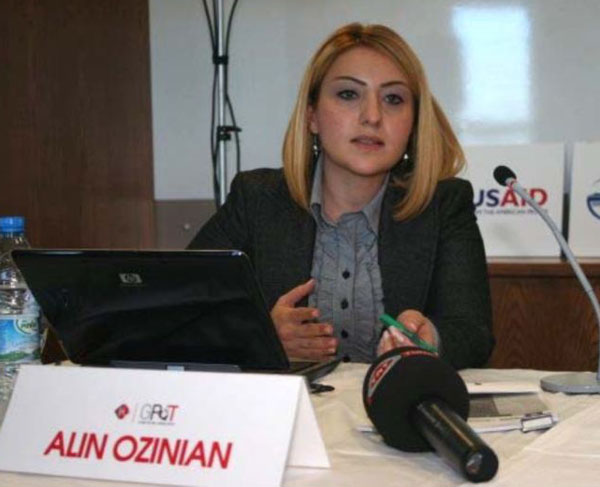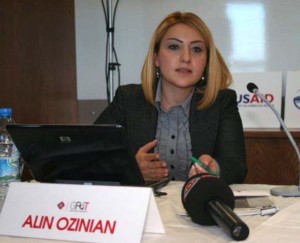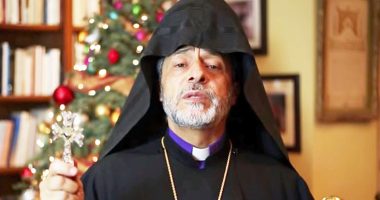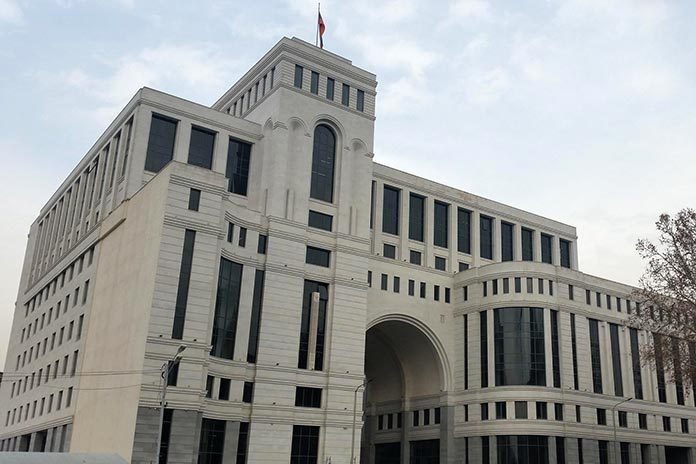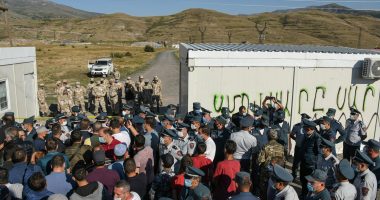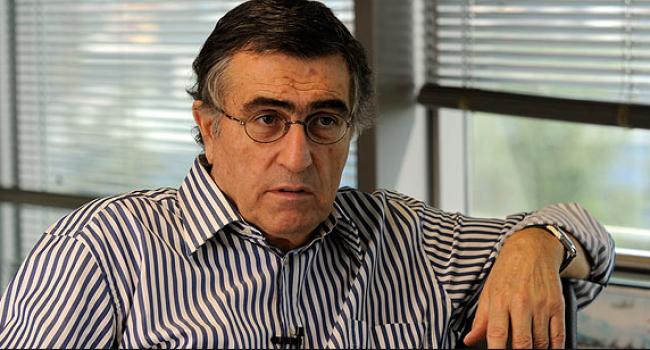Being an Armenian in Turkey is tough. The act of “being invisible” turns into a habit which becomes instinctual, instead of being a response to circumstances in which being an Armenian may cause a problem.
Armenians who have adopted a second name, as if they are members of an illegal organization, predominate in Turkey. While the generalization that every Armenian has a Turkish name isn’t correct, the majority of Armenians do. After hearing the pronunciation of your name the eyes of the person you are speaking to flame with resentment and they say “What?” as if they had tasted something bad. When you repeat your name, they generally and disgruntledly ask “What does it mean?” As for those who have “discretion,” upon hearing your name they say, as though they have been yearning for some kind of extinct being, “So, you are a foreigner!” They become exuberant and ask: “Where did you come from? How did you learn Turkish? Were you born here? Where are your ancestors from? You have such a different name, just like the ones on foreign TV programs.” In order to satisfy the curiosity, some Armenians add, “I am Armenian,” although the number is small. When they receive the response, “You don’t look Armenian at all,” or “This is really unthinkable,” or “Did you come from Armenia?” they try to drop the subject and leave as soon as they have finished their job. If you use a “nickname” it is very unlikely that any problems will come up. Nobody will cotton on to it if you don’t have a distinctive accent. In circumstances when nobody asks anything, you finish your job and go on your way. As a matter of fact, this is the advice that family elders give to Armenians: “Oh! May my child be away from trouble.” Therefore, some Armenian families exaggerate this “color changing” operation, giving their sons Turkish names and even getting their sons circumcised, telling them it is for their health. Even if it is difficult, we can understand the motivation: “This boy will go for military service, where his name will already be an enemy against him. If, in addition to this, his friends in the army discover that he isn’t circumcised, it is unlikely that he will return from service safely.”
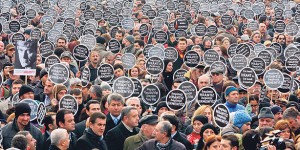

Those who prefer being ‘nice’ to treating ‘equally’
Sometimes the reactions of those who are a little familiar with Armenians may be even more frustrating. When this puzzling group, who believe themselves to be more “modern” and even more “Kemalist” hear the word “Armenian,” they may boast of knowing about you just like they boast of knowing about the bacons and French wines they eat and drink in Europe and about which “the herd” and “conservative” Turks have no idea. They approve of you, saying: “How lovely! We had Armenian neighbors in past but then they migrated to America” or: “We, as a family, never discriminate against people. Whether they are Armenian or Greek, they are all human. It is said your raki tables are very good.” Those modern friends, who don’t differentiate between the actual Armenians and the Greeks, from topik — a dish made of chickpeas, onion, currants, cumin and tahini — mackerel or stuffed vine leaves in olive oil, which can be found on a raki table, to a good night out on the Bosporus, never question why their “Brother Onno the car repairman,” “tailor Haiganushu” or “neighbor-aunt Mary” left Turkey so suddenly after they had been living happily in the same neighborhood for so long. They never look at what happened in the history of the Turkish Republic that they are so proud of. They don’t know about the campaigns launched in Turkey to make citizens speak in Turkish, the September 6-7 riots against citizens of Greek origin in Izmir, Istanbul and Ankara and the Wealth Tax. They tolerate your “fault.” They don’t have the slightest idea that they are standing at the bottom of a well, in darkness, when they say: “Are you an Armenian? It is fine with me, it doesn’t matter to me.” They say, “You are also a citizen of our country,” which means, “This is my country.” People are defined as “you” and “me” within the first few minutes of an encounter. That person prefers being “nice” to you, rather than treating you “equally.” “They” promise to love you, provided you are on your best behavior. There is no “we.”
Who says ‘We are all Armenians?’
Whenever neighbors, colleagues and tradesmen, regardless of whether they are Turkish, Kurdish or Circassian, who live with you in the same country, come to share your sorrow, join the crowd, take a risk and shout out in streets that “We are all Armenians” and “You are not alone, my friend,” one feels hopeful, secure and peaceful. Saying “We are all Armenians” means: “If you murdered Hrant Dink just because he was Armenian, then we are all Armenians. Come and murder us, too.” It means: “If you kill a person just because he or she is Armenian, you can add me to your list, too.” It means: “If you think that you can make me feel ashamed by calling me ‘Armenian,’ you are about to make a big mistake.” It means: “If you suppress a person because of their ethnicity, then we will disguise ourselves as them.”
It should be remembered that non-Armenians empathized with and supported Armenians when they shouted this slogan. Thereby, this doesn’t suggest that the ones who were shouting were Armenian. On the contrary, it indicates that they were not Armenian. Armenians shouting out about being Armenian is not a political action. The truth is that the goal of people who were ready to share their sorrow at these protests, with their heart and soul, were not understood. Moreover, many are trying to distort this goal. The kind of attitudes which suggest that such ignorance can only be healed by means of education remind us how “fragile and essential” “Turkishness” is. The stance of those who respond to this slogan with, “Not all of us are Armenians” and those who say “We, as Turkish people, are against the murder of Hrant, but this [shouting that we are all Armenians] is too much” represents a demagogic repetition that remind us of the thesis “Turkey belongs solely to the Turkish.”
It could be said that calling someone “Armenian” is the biggest insult in Turkey. We all know this too well. The possibility that Sabiha Gökçen might have been an Armenian offended many people. It was said that searching for the origin of a person like Gökçen, who became a national symbol, would damage the nation’s integrity and peace. We were clearly told that the probability that Sabiha Gökçen may be of Armenian origin would harm her status as a symbol of the emancipation of Turkish women. Moreover, Hrant Dink, who published this news about Gökçen, was turned into a target. His sin was clear; he had opened up a precious asset of Turkey for discussion, damaged national integrity and peace and, of course, he insulted Turkishness.
There are a number of other examples. For example, the attitude adopted after Canan Aritman of the Republican People’s Party (CHP) claimed that President Gül’s mother was Armenian showed that the comment had caused great upset, but did not counter the claim, which was considered an insult. Nobody from the Çankaya presidential palace said, “Even if she was Armenian, so what?” and everybody became an amateur geneticist. At the time of the allegation there were people who, with a “list” at hand, appeared on television threatening to declare who is Armenian and who is not.
Indeed, the whispers of actual thoughts that pop out while trying to say something good can not only surprise people but also make them feel restless. The last of these was President Gül’s comment regarding the Hrant Dink case. It isn’t possible discern what he is intending to say in his statement: “In Turkey everybody is equal before law. We need to prove that we always give equal treatment to foreign companies and to people of foreign origin.” Unfortunately, in some ways these words support what Prime Minister Erdogan said a couple of years ago. In his speech about fugitive Armenian workers, Erdogan said: “There are 170,000 Armenians in my country and 70,000 of them are my citizens. However, we tolerate a hundred thousand of them in our country. If required, I will tell those one hundred thousand Armenians to go back to their country.” In this way, seventy thousand Turkish citizens were lumped together with Armenian fugitives; in other words, they were downgraded to the status of foreign citizens.
What is the meaning of the emphasis on someone’s “foreign nationality” regarding the Hrant Dink case, when that someone says: “I am from Turkey. Turkey should become a member of European Union. Turkey should go forward. I set my heart on this”? How many more years should Armenians, who have been living on these lands since the Ottoman period, continue to live here? How many architects, doctors and linguists do they need to raise before they are considered to be the children of this country and gain the opportunity to be hired as civil servants and soldiers? There appeared hope that Armenians would be hired as civil servants a hundred years ago. However, this hope was stalled for a long time and ultimately was never realized. How many more years will pass by before we see the headline: “An Armenian will work as a civil servant”?
Minister of Labor and Social Security Faruk Çelik said: “We don’t need identity change and we don’t need to all become Armenian to condemn the brutal murder of one person. Keep away from statements that may cause yet more offense when sharing in the sorrow of others.” It is very sad to relegate the support given to Armenians to a “change in identity.” In Turkey, every morning millions of Turkish, Kurdish, Circassian and Laz students pledge: “I am Turkish, honest and hardworking” at schools across the country. In school corridors stand busts of Atatürk, below which are written “How happy is the one who says I am a Turk.” If those schools belong to Armenians or Greeks they should make the pledge with a louder voice — that is what a Turkish deputy head wants. Even at an early age those kids understand that if they don’t say they are Turkish in this country, then they won’t be happy. Whenever someone shouts out “We all are Armenians,” those children feel that something is changing and they understand that there is hope for a Turkey where Armenians, Kurds and Circassians can be happy. You now have friends that really understand you and share your sorrow. What is first and foremost is that we don’t need to take an oath in which one mentions how proud he or she is of your or their nationality in order to understand each other and to live in peace.
*Alin Ozinian is an independent analyst

